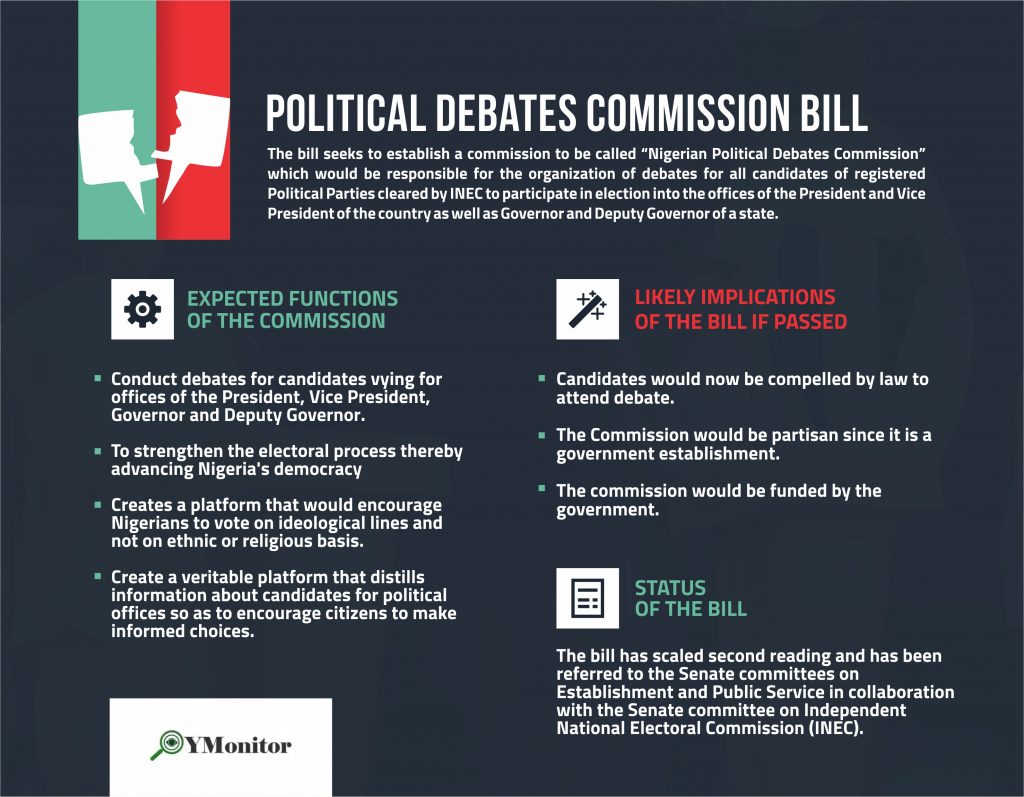by Usman Alabi
Analysis
The state as an institution exists to balance the various political temperaments in the political space. The Hegelian perspective of the state believe that it is a neutral institution that mediates between the various classes in the political clime, in other words the state though has an interest which is law and order for all, but it does not directly involve itself in the interest of other classes as long as it does not affect the ultimate goal or the manifest destiny of the state.
The essence of this explanation is to lay a ground work for the fact that the responsibility of government is not directly to develop the state, but to create an enabling environment for the various classes to carry out institutionalized development without unnecessary impediments. The reason for this is that the state is not and cannot be the only institution that can enhance institutionalized development. The Political Debates Commission Bill is definitely not what we need at this point in time, because it means the state taking over the responsibilities of other independent institutions within the state, especially the media and organized civil society.
Why should the state be directly involved in a matter that should be organized by the people themselves? why should scarce resources be expended on an institution whose core responsibility is a trivial matter of debate that only comes up every four years? Why should bureaucratic machinery be set up for issues such as this?. The intention behind the bill is well understood and and good but the idea of realizing it through a commission is nothing but an exercise in futility.
One then begin to question the intellectual readiness of the National Assembly to take us out of the present political and economic quagmire because in the long run a country cannot grow beyond its institutions.
For the sake of the following reasons, the Nigerian Senate must either repeal the bill or reform it. An organization that would organize political debate for all candidates including an incumbent should not be at the whims and caprice of such incumbent, yet that is what a political debates commission if established would be.
A political debate organization is not supposed to be funded by the state in whatsoever way, but the bill when passed would mean that part or major part of its funding would come from the state. Civil servants and representatives of political parties would definitely be part of the Commission if the bill is passed, but this is not supposed to be so, members or workers of an independent debate commission are not supposed to be civil servants, this is to avoid them from being partisan.
It is also important to state that the leadership of such commission would be appointed by the president which on its own has dented the neutrality toga of the commission. Then candidates of political parties would be compelled to attend the debate, but if examined critically, it is also not meant to be so, it should rather mean that candidates attend on their own volition because they know that it is a credible platform that would make or mar their campaign.
Perhaps this bill is an exercise in futility because its eventual passage would defeat the spirit behind it.
